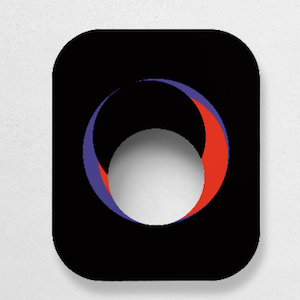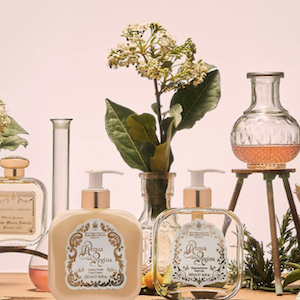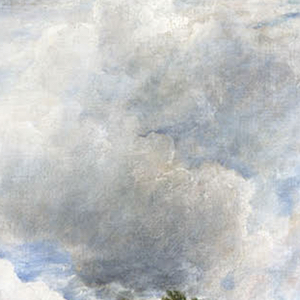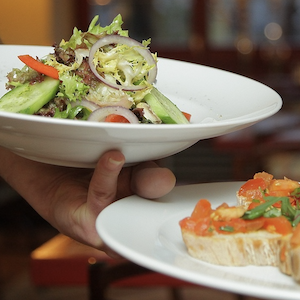Under Present Conditions; Material as a Mirror to Our Time
By Eliza Winstanley
Materials are all the talk these days. What we use, how we use it, but most of all, where did it come from? How much damage is it doing? In the name of sustainability and imagination, artists at Friedman Benda gallery in New York are scaling up what we would normally see as rubbish; transforming it into conscious yet chic design. Art that isn’t rubbish but is beautiful.
“The climate crisis is a crisis of culture, and thus of the imagination”
-Amitav Ghosh
The fashion and design industries, in particular, tend to struggle with our ecological needs. But it doesn’t have to be so. More and more practitioners are looking for greener ways to ‘produce’ works. Contemporary designers are questioning the forces of the design industry, interrogating mass processes of production and industrialisation. They are questioning this need more and more.
Under Present Conditions, a new exhibition by New York’s Friedman Benda gallery, is embracing a spectrum of approaches and emerging practices, from recycling and upcycling to reimagining material life cycles. Each creation is a personal expression of the artist and, at times, a poetic reflection of the pressing conditions we face in our world.
Erez Nevi Pana
This Israeli designer investigates the processes of mineral extraction, through the production of salt-based design and architecture. Centered on the Dead Sea, (a naturally occurring salt water site in south Israel) his work explores the significant imbalance caused by too much salt accumulating due to local industrialisation and mineral extraction.
Collecting wasted salt from the Dead Sea, he then crystallises the grains into fascinating abstract formations that reflect the natural world. His practice is based on natural phenomena and how we can innovate our own systems of design and production by looking at organic processes.
Similarly, Estúdio Campana from Brazil recontextualises local materials with craftsmanship, illustrating the triumph of simplicity in sustainable design.
Estudio Campana
Based in São Paulo, the Campana studio, founded by the Campana brothers, continuously explores new frontiers in design, spanning furniture, architecture, landscaping, fashion, and scenography; with transformation and reinvention at the core of their design ethos.
“We learn from the materials; they tell us what forms they should take.”
-Humberto Campana
Merging craftsmanship with sustainable production methods and cutting-edge technologies, they deliver innovative and environmentally conscious designs that are deeply rooted in Brazilian culture and traditions whilst bridging disciplines and materials.
This is a growing collection which has been safeguarded for future generations, preserving and leveraging design as a catalyst for social transformation through cultural and educational initiatives.
Could you imagine photosynthesis as a design process? UK-based Full Grown Studio prefers to grow their own designs, rather than traditional manufacture.
Full Grown Studio
Imagine growing your living room furniture in your back garden. Like potatoes or tomatoes, this is exactly the progressive approach that Full Grown Studio have taken to furniture design.
Prioritising the symbiotic relationship between man and nature, Full Grown manipulate trees to grow directly into the shapes of furniture. Not only does this method require less energy and processes of extraction, but results in uniquely stunning pieces of furniture; which are ultimately stronger and longer lasting.
This novel approach reimagines our relationship with production processes and the ideas we have about ‘man-made’ products, offering an alternative rooted in horticulture.
And what about barrels and cans, piled into landfills at every turn; can they too be repurposed into chic contemporary design?
Hamed Ouattara
Multidisciplinary artist Hamed Ouattara from Burkina Faso says yes. A designer who challenges the culture of disposability by transforming discarded oil drums into striking, vibrant artworks that speak to the consequences of global consumption.
He creatively utilises local raw materials like upcycled barrels and cans, directly reflecting his upbringing and surroundings in West Africa. His studio adjusts its production and distribution approaches to match the local sociopolitical conditions, encouraging an economy of reuse and sustainability.
The essence of indigenous craft speaks through his work, employing pivotal themes of recycling, upcycling, and reimagining material life cycles.
Also challenging the oppressive system of human-centric design is French-born freelance designer, Marlène Huissoud.
Marlène Huissoud
We have all heard of the phrase ‘Save the Bees!’ but what are we actually doing in aid of these small but mighty creatures?
Huissoud employs natural materials in her sculptures like silkworm cocoons and honeybee bio resin to challenge the anthropocentric focus of design, advocating for a holistic approach that considers all life on earth.
Her work interrogates our collective consciousness; would the world be a better place if we had just let it be? Through her creative process, she encourages awareness of our impact on Earth and urges action.
Using such unique forms of materiality, Huissoud questions the ethical dimensions of design and the potential for creative solutions to address sustainability challenges.
Another artist showcasing the value in what is often deemed secondary, is the work of British designer, Max Lamb.
Furniture designer Lamb works entirely with recycled cardboard from his studio, resulting in raw and unfiltered eccentric design.
The emphasis on tactile experience is essential in his furniture, featuring tables crafted from pulped cardboard and chairs made from polystyrene. Something that feels wonderfully childlike and human.
The artist’s speed and spontaneity with this medium results in experimental shape and texture, crossing boundaries between art and design, materiality and function.
The trend of raw and unfiltered materiality is continued within the work of Studio Raw Material.
Studio Raw Material
Based in the desert planes of western India is Studio Raw Material, established in 2016 by Dushyant Bansal and Privanka Sharma. Their work ignites a commentary on socio-economic forces that re-imagine waste materials, utilising off-cuts of marble and stone and locally sourced materials.
The values of their local community are echoed through investigative design, that serves to reflect eroding landscapes shaped by rapid industrial activity and as a comment on the waste generated by the marble industry.
Further exploring the effects of material waste is artist Paul Cocksedge, whose work combines traditional craft with cutting-edge technology.
Paul Cocksedge
Transforming the ordinary into the extraordinary, Cocksedge’s creative practice is his narrative vehicle for environmental activism.
His art maintains a curiosity about our connection to Earth, tackling urgent contemporary issues ranging from social connectivity to our dangerous dependency on fossil fuels.
Using anthracite blocks, this sculpture included in the show subtly conveys a message about ecological balance: if burned, it would take 20 trees a whole year to offset the carbon emissions produced.
Cocksedge has collaborated with fellow designers such as Issey Miyake and Ingo Maurer, as well as partnered with renowned brands including BMW, Flos, Hermès, Sony, and Swarovski; providing a crucial impetus for fashion brands to prioritise a sustainable mindset.
Sustainability is not merely a trend but a fundamental ethos driving innovation and creativity in the design industry. By embracing materials and processes that honour ecological limits and promote circularity, these designers are charting a crucial path toward a more regenerative and equitable future.
We mustn’t tentatively edge toward these solutions but grab them by the horns and refuse to let go. The future of design must encompass these processes if we are to survive the climate crisis, but here Art conquers all.
Under Present Conditions at Friedman Benda, New York, from May 2, 2024 to June 15, 2024.
If you enjoyed reading Under Present Conditions; Material as a Mirror to Our Time, why not read The Great British Package Holiday
Cent Magazine London, Be Inspired; Get Involved














